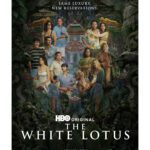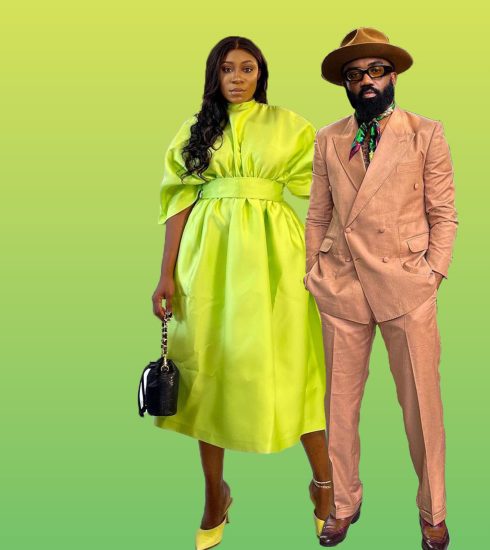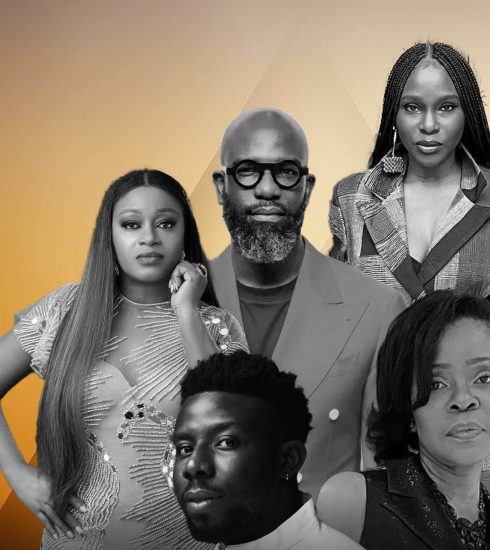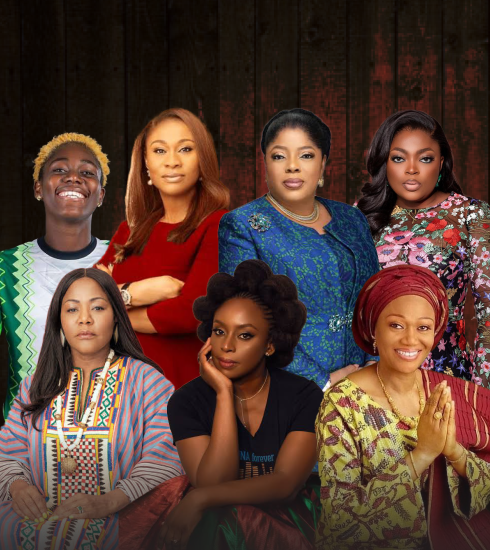Emmanuel Ikubese: Building a Legacy Through Stories
Storytelling in the Nigerian movie industry has come a long way. What started with low-budget productions has grown into a powerful force that now tells bold, real, and relatable stories. From films that entertain to those that spark deep conversations, Nollywood has become more than just an industry; it’s a mirror of our society. Through storytelling, Nigerian filmmakers are transforming the way the world perceives Africa, amplifying the voices of everyday struggles, hopes, and dreams.
One person who understands this deeply is Emmanuel Ikubese. From being crowned Mr. Nigeria in 2014 to becoming a respected actor and now a rising director, his journey has been filled with growth, purpose, and intention. While many know him for his standout role as Femi in MTV Shuga, Ikubese has gone far beyond the screen. He’s passionate about telling stories that matter, stories with depth and meaning. As a director, he’s not just creating content; he’s building impact. His directorial work, like the well-received series Kyaddala, shows his commitment to stories that spark thought and reflect real-life issues.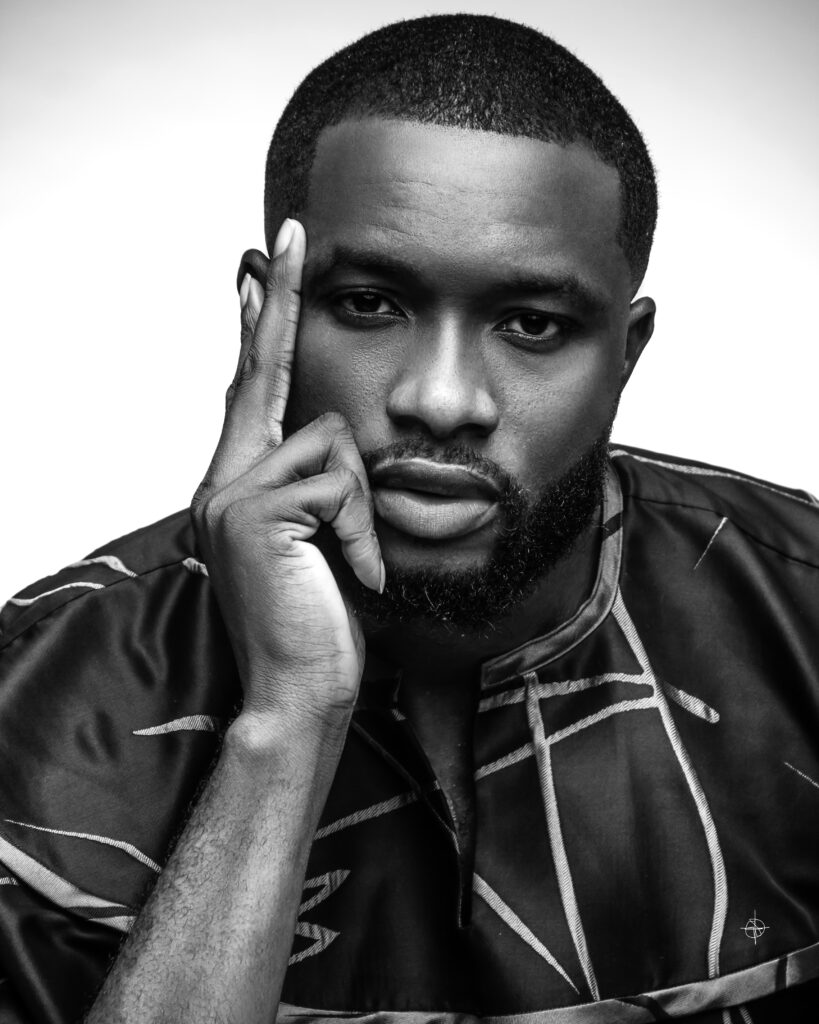
In this interview with THEWILL DOWNTON’s Dorcas Akintoye, Emmanuel Ikubese discusses his evolution in the film industry, what storytelling means to him, the kind of stories he wants to tell, and how he’s using his craft to build a legacy that will outlive trends and titles.
You’ve worn multiple creative hats as an actor, director, and model. Which of these roles challenges you the most and why?
Directing my own films has been more challenging because it requires me to seek out funding, build from scratch, tell my own story, and make my own films. So I would say that’s the most challenging. And I think where I’m at currently, I feel like, for me, with life, life evolves, the present state is usually your new challenge, and this is where I’m at right now as a director and a filmmaker, trying to make films and trying to come into a market and industry that is growing in such great heights and dimensions and getting attention from the global market. So, preparing yourself to not just be a player in that industry, but someone who also shapes what that industry looks like in the next five to ten years, requires quite a lot of work. And that’s where I’m at, and that’s what I’m currently doing, building and trying to prepare myself for that journey. So I would say that’s the most challenging.
Has there ever been a time you questioned if you were on the right path? What pulled you back in?
I feel like we often reach this point, wondering, ‘Are we on the right path?’ Are we doing the right thing? A lot of times, when things feel like they’re not moving at the pace that you want them to move, every one of us has those moments where we begin to doubt. But for me, my faith in God is what comes into play a lot of times. The things that I do, I do them because I believe I have been called to do them. And a lot of times, I realise that the fact that you’ve been called to do something does not mean you’re not going to get resistance. It does not mean you’re not going to fail. In fact, the fact that you’re called into something and the amount of resistance that you feel shows that that’s the place you need to keep on pushing and keep on striving and keep on bringing your best, and you’ll break through at some point. And I’ve also been in some experiences that I’ve seen personally in my life, the more there’s challenges, the more it helps push me to the best of my ability, to becoming the best person that I need to be, to prepare me to become that person that I need to be in regards to what I want to truly do in the industry. And that’s what I’ve seen challenges, resistance and failures do to me. It has only made me better. It has only made me stronger. It has made me more rugged. The more notes I get, the more I keep on striving to get that because I know it really takes one year.
What’s one major mindset shift you’ve had to embrace in order to grow, both personally and professionally?
I would say my mindset shift is never give up. Never give up. Never give up. At the moment you feel down, at the moment it feels like it’s not working, at the moment where it feels like you’re hitting a wall, at the moment where it feels like nothing seems to be happening, the doors do not seem to be opening, just keep on going. Get back up. At the time when you feel like you’re flat down and you don’t even have the strength to try again, well, it’s okay, get back up, and just try again, right? And for me, that is my drive. Keep on going. And one scripture that helps me a lot is when the bible said all things work together for my good. So even in the disappointments, even in the yeses and the nos, even the good and the bad times, I know that everything’s working out. So, when it seems like I have a lot more disappointments than I’m experiencing the kind of breakthroughs or the kind of yeses or the kind of advancement that I want to see, I hold on to that. Never give up because even in this disappointment, it is shaping me, or it is working together for my good. So that keeps me going. I just keep on praying for strength, and I find strength to go again, to go again, to go again. So, yeah, never give up.
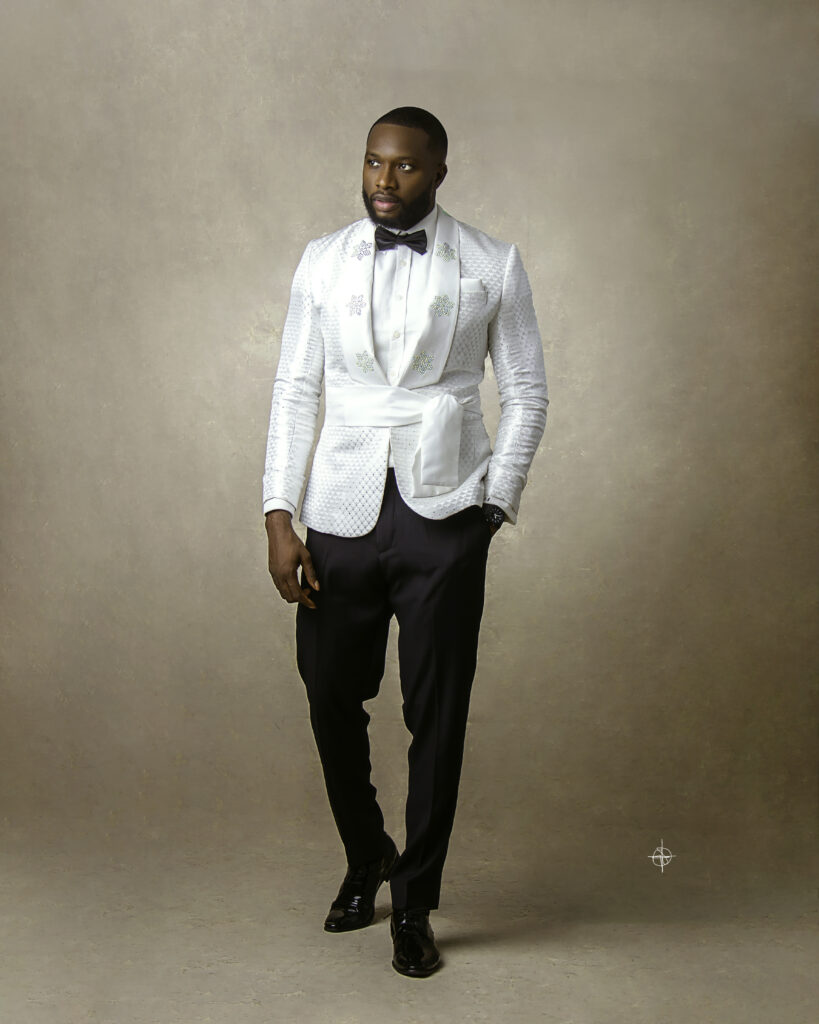
What kind of stories do you find yourself naturally drawn to, both as an actor and as a director?
I love very beautifully told, compelling, emotional stories. I love stories that spark emotions and also stories that engage and stir conversations. So, a lot of the time, I’m very big on making films that are around themes or subject matters that affect us in our society that we seem not to be talking about. I seem to be very passionate about things like that, telling those stories. And I love to tell them in such emotional ways, so I put in a lot of work in regards to research to see that my stories and the characters that I build around the stories are very relatable characters to what people are dealing with, so that when people get to see this project and see these films, they see themselves in these films. And I think because that was where I came up from with my first films as an actor with MTV Shuga. It was very relatable to what a lot of young people were dealing with at the time. So, coming out of that space into my own project, I’ve found myself wanting to tell stories that are relatable to what people feel. I want to evoke genuine emotions from what people feel, so they can connect with it and see themselves in it. For example, you can see the endgame of a journey you’re on, and you’ll be like, you know what, if I see that, I will trace myself back because if that’s the endgame, I really want to get to that end. And conversations like, oh, can we really talk about this thing, themes or storylines that stir up conversations among family members, among friends, that just feel like, wow, my friend might be dealing with this, and I probably have not given them the kind of support as a friend that I need to. And we begin to find people having this conversation. So, for me, those are the kind of stories that I love to tell. Stories that create a spark or that stir up interest in people stir up a conversation amongst people.
What draws you to a script or project as an actor, what has to be there before you say “yes”?
For me, as an actor, what draws me to a project is depth. I’m very big on depth. Stories that have a lot of depth. Stories that make people feel, that make people react, that make people think, that make people reflect, that make people do an audit on their own lives and be like, okay, you know what, I need to take a chill pill, right, or I need to reevaluate my life, I need to reevaluate my decisions because I see myself on this path and I’m seeing the end game. So, stuff like that. So, I love to play real characters like that. I like to play characters that are just very basic. I love very challenging characters. As I mentioned, that have a lot of depth, featuring many relatable characters who carry a lot of emotional weight, which can draw the audience into the storyline.
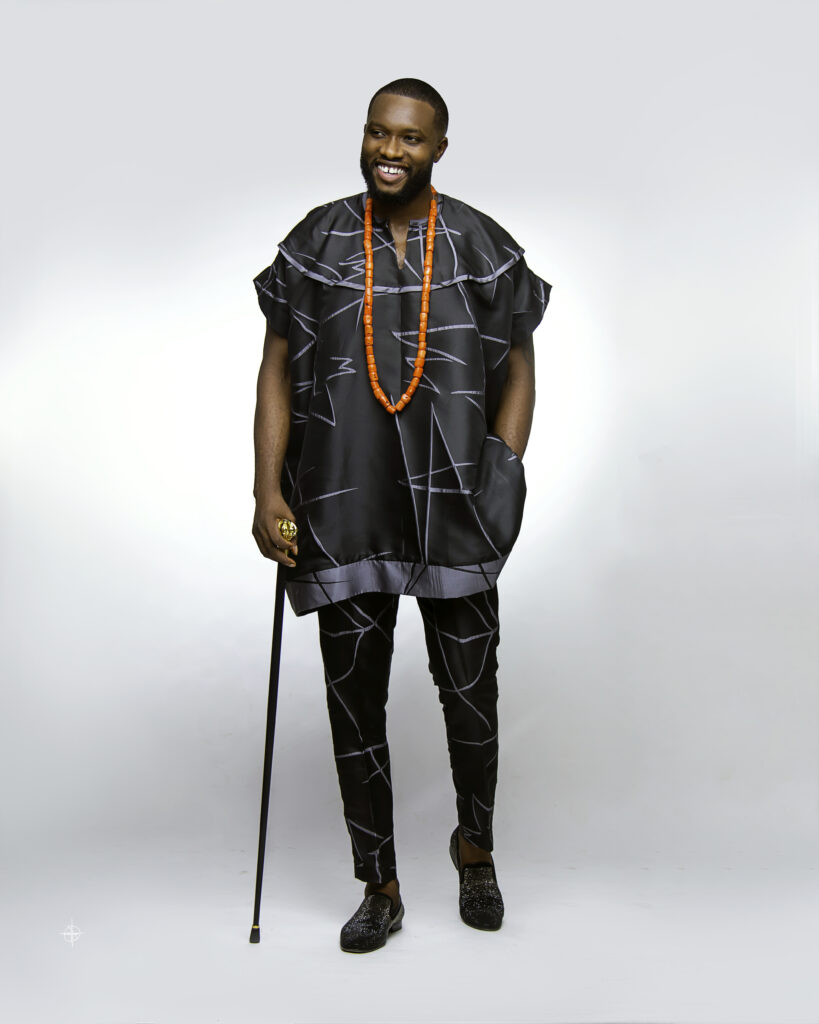
If you could reshape the Nigerian film industry from scratch, what would you do differently to support emerging talents?
I believe it’s essential to provide opportunities that are open, free, and fair, allowing people to come in and create opportunities to generate great talent, including new talent that doesn’t have a large following. I feel like we’re slowly going to that place. There’s nothing wrong with that, as long as the person is very talented as an actor. But sometimes I’ve realised that it’s about the number. We have the likes of Mr. Macaroni, who we see as a great actor, and yes, he is a content creator. But there are a few of them. But we need to be careful not to go into that area where it’s just about likes and just about people with those huge followings and not about the talent. There’s so many kinds of people and we need to create an open playing field for them to be able to find expression and show the world their talent without feeling like they need to know someone, without feeling like they need to beg for it, they need to belong to a clique, they need to belong to a circle or they need to, in some cases, be oppressed by film producers to sleep with or whatever, private way to get a chance or to get an opportunity to showcase their talent. So, yeah, I feel giving people a free and fair playing chance to showcase their talent openly would be something that I would give a chance. And find a way to mix them up with already buzzing talent, so you can have an opportunity where we’re creating great talent. And I’m seeing people live their dreams as well.
What legacy are you hoping to leave behind, not just in Nollywood but in African storytelling as a whole?
Even though I am just starting, I feel like everyone always has an end game in mind from the start. And for me, if you ask me what legacy is, I want to be known as a producer and filmmaker who tells really brilliant stories. Someone who people can say, “Wow, your stories helped me make the right decision. Your stories changed my life. Your stories impacted me. Your stories gave me a chance to believe again, gave me a chance to pick myself up again.” Globally or from an African context, I want to be able to tell stories that shape who we are as Africans, that change the narrative on how we see ourselves and how the world sees us. I want to be known for excellence, to be a filmmaker and leave a legacy that says, “Wow, whatever project Emmanuel does is excellent.” There are a lot of details he puts into it. He’s a master at what he does. From the story to the film, from pre-production to post-production to building characters to every aspect of the film, people can see that there’s so much that he has put into work. And also, I want to be known for giving emerging talent an opportunity to come into the limelight, into the industry and showcase themselves and showcase their talents. I also want to be known for one who has trained a lot of people. That’s what I thought, you know, it doesn’t seem like, apart from just giving actors an opportunity, opportunities to actors, to train them, not just actors, to filmmakers, to help them find their own calling as individuals on their own lane. I want to be known as a positive role model, someone people can look up to, a generation can look up to, and say, “You know what, Emmanuel is doing it right.” He’s level-headed. He seems to know what he wants. His lifestyle, his character is very positive. He’s full of light. And, you know, he’s known to be respectful. And he’s a good person, right. I want people to see Christ. I just want people to see, at the end of the day, that this is a role model that a generation can look up to and see that he is someone who is level-headed and has worked with so much excellence. I want to be able to push the narrative, push to such heights and such levels that has never been achieved before, even globally, for an industry like what we have in Nigeria and Africa at large and find ways to connect the continents through stories.
What’s one dream project you haven’t done yet but are actively working toward, maybe something that scares and excites you at the same time?
There are so many. I’ve not even started yet. I think there’s so much I have. A lot of the projects that I have are very scary projects because they don’t seem to be in a status quo of what we do at Nollywood as an industry, which is very scary. So, I find myself trying to expose myself to people with such level of excellence so that I’m able to bring such projects to life. A lot of them I’m learning on the go. I’m still developing myself and my skills to bring projects like this to life. But I have a lot. I can tell you that 95% of the projects that I have are beyond just the norm.
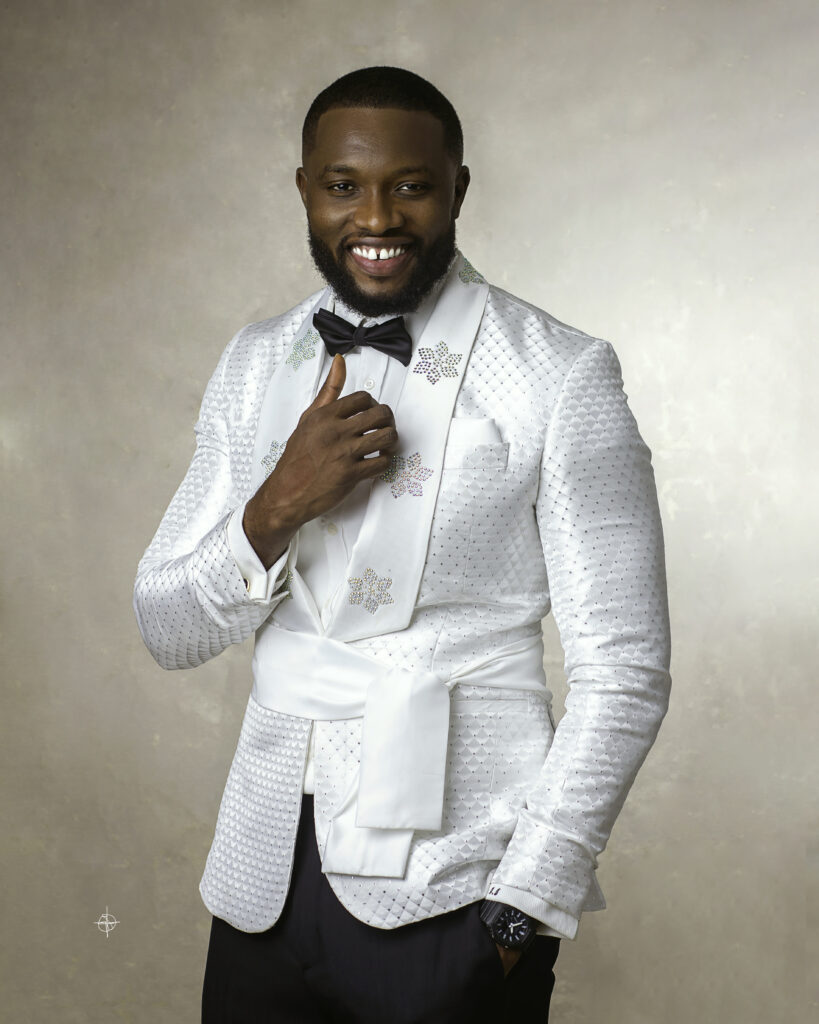
How do you stay grounded in your purpose while navigating fame, pressure, and the ever-evolving entertainment industry?
To give you a response from the standpoint of what the industry is, I spend a lot of time within. One of the things I have learned so much is learning to build in silence. And I’ve realised that in silence is where a lot of things happen for you. You’re not so much in the noise. There’s so much happening in the noise, and the noise can be very distracting sometimes. But in silence is where you can build, where you can find solace, where you can find peace, where you can build, and then come out, do what you need to do, and go back into that space. So, I tell you, that’s the one thing I’ve found in this season, and it’s something I intend to keep. Yes, I come out when I need to and do the things that I need to do. But most importantly, I have learned to know when to withdraw into my shell and build in that space. So, for me, it is walking in silence.
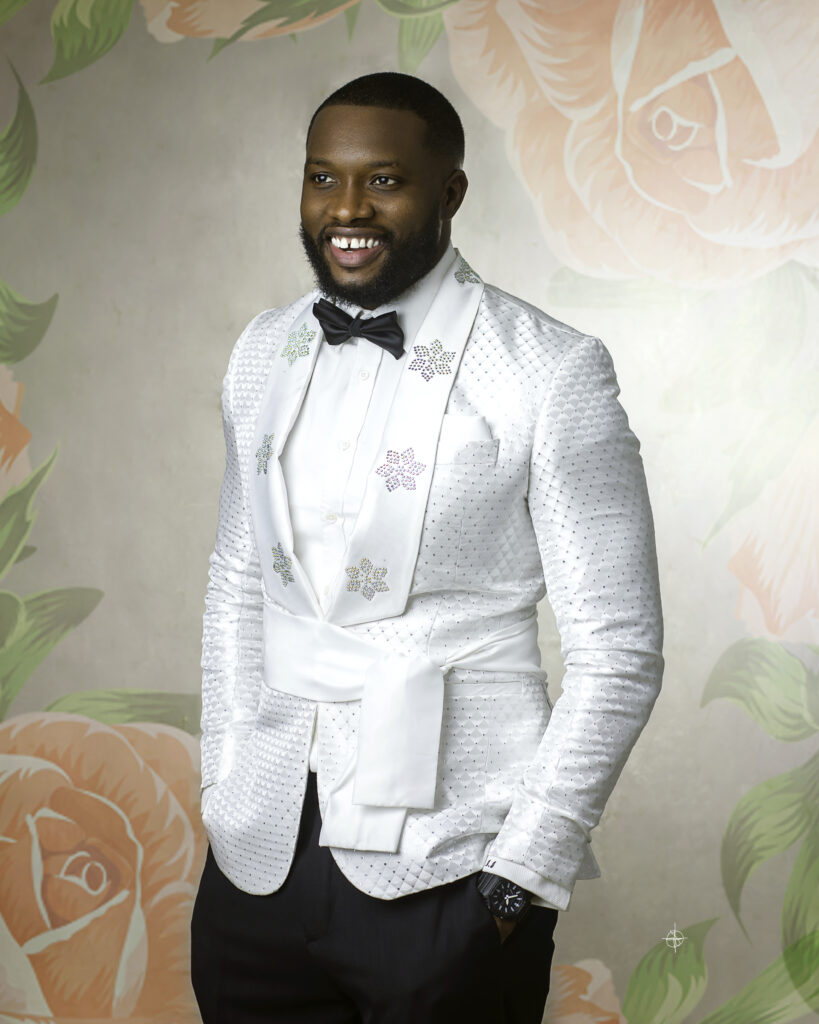

Dorcas Akintoye is a versatile writer with a passion for beauty, fashion, relationships, and culinary delight. With a keen eye for detail and a passion for storytelling, she adds a touch of elegance to every topic she explores. She is a writer at THEWILL DOWNTOWN.


